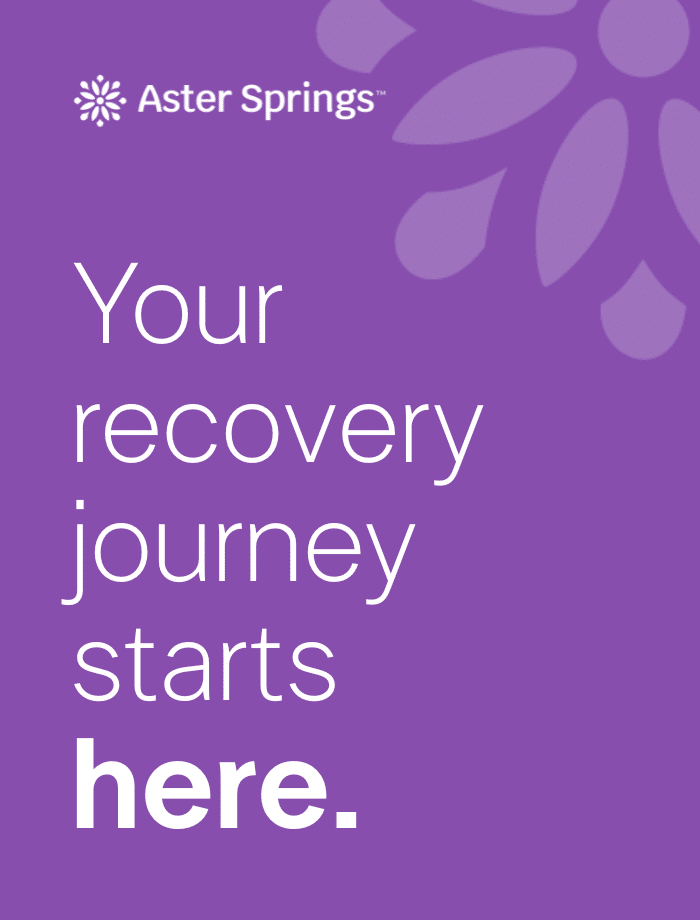Recovery from an eating disorder rarely follows a straight path. Many people experience periods of wellness punctuated by setbacks, leading to a crucial question: can eating disorders truly come and go, or is relapse simply part of the recovery journey?
The answer is more nuanced than a simple yes or no. Eating disorders can enter periods of remission where symptoms significantly decrease or disappear entirely.
However, without ongoing support and attention to underlying vulnerabilities, symptoms can resurface — sometimes years after initial recovery. Understanding the cyclical nature of eating disorder relapse helps remove shame from the recovery process and reinforces the importance of sustained treatment and self-awareness.
What Is Eating Disorder Relapse?
Eating disorder relapse occurs when someone who has made progress in recovery experiences a return of disordered eating behaviors, thoughts, or attitudes about food, weight, and body image. This doesn’t necessarily mean returning to the full severity of the original disorder. Relapse exists on a spectrum, from minor slips in thinking patterns to a full recurrence of the dangerous behaviors that characterize clinical eating disorders.
A “lapse” — a brief return to old behaviors — differs from a full relapse. A lapse might involve skipping a few meals during a stressful week, while relapse typically involves a sustained return to restrictive eating, bingeing, purging, or compulsive exercise that significantly impacts daily functioning and health.
The distinction matters because lapses are common and manageable, while full relapses require immediate professional intervention at an eating disorder treatment center like Aster Springs. Recognizing the difference allows individuals to seek appropriate support before temporary setbacks become entrenched patterns.
How Common Is Eating Disorder Relapse?
Research indicates that eating disorder relapse is unfortunately common, though rates vary depending on the specific diagnosis and treatment approach.
The risk remains elevated for several years. One longitudinal study found that among individuals who achieved remission from anorexia, bulimia nervosa, or binge eating disorder, relapse rates ranged from 35% to 41% over a 9-year follow-up period.² These statistics underscore an important reality — recovery is an ongoing process that often requires multiple episodes of care and continuous support.
Studies show that approximately 30-50% of individuals treated for anorexia nervosa experience relapse within the first year following treatment discharge.¹
Anorexia relapse is particularly concerning due to the medical dangers associated with a return to extreme restriction and weight loss. However, relapse in bulimia nervosa and binge eating disorder also presents serious physical and psychological risks that warrant immediate attention.
Why Do Eating Disorders Return?
Several interconnected factors contribute to eating disorder relapse. Understanding these risk factors helps individuals and families recognize warning signs early and take preventive action.
Incomplete Treatment or Premature Discharge
Many individuals leave treatment before fully addressing the psychological roots of their eating disorder. Insurance limitations, financial constraints, or personal readiness issues can result in discharge before someone has developed adequate coping skills. Without addressing core issues like trauma, perfectionism, or emotional regulation difficulties, the conditions and thought processes that fostered the eating disorder remain present and untreated.
Life Transitions + Stress
Major life changes often trigger eating disorder relapse. Transitions such as graduating from college, starting a new job, ending a relationship, or experiencing loss can overwhelm coping resources. During these periods, individuals may unconsciously return to eating disorder behaviors as a familiar way to manage anxiety or regain a sense of control.
Co-Occurring Mental Health Conditions
Depression, anxiety disorders, obsessive-compulsive disorder, and post-traumatic stress disorder frequently co-occur with eating disorders. When these conditions aren’t adequately treated or when symptoms worsen, the risk of eating disorder relapse increases significantly. Research demonstrates strong correlations between mood symptom recurrence and eating disorder relapse.³
Social + Environmental Factors
Returning to environments or relationships that originally contributed to the eating disorder can reignite old patterns. This might include family dynamics focused on appearance, friend groups with disordered eating norms, or professions with body size requirements. Social media exposure to diet culture and appearance-focused content also serves as a documented relapse risk factor.
Physical Health Changes
Illness, injury, or medical procedures that affect eating, weight, or body function can destabilize recovery. Digestive issues, medication side effects, or forced dietary changes may trigger anxiety around food that quickly escalates into disordered behaviors.
Recognizing the Warning Signs of Relapse
Early intervention dramatically improves outcomes when eating disorder symptoms begin returning. Watch for these warning signs as you navigate recovery:
- Increasing preoccupation with food, weight, calories, or body shape
- Reintroduction of food rules or restrictions
- Changes in eating patterns, such as skipping meals or eating alone
- Resuming body checking behaviors or excessive weighing
- Withdrawal from social activities, especially those involving food
- Increased exercise or compensatory behaviors after eating
- Negative self-talk intensifying around appearance or worth
- Mood changes including irritability, anxiety, or depression
It’s important to note that these signs often appear gradually. You might notice yourself mentally calculating calories after months of intuitive eating, or feeling compelled to check your body in mirrors throughout the day. Friends and family may observe personality changes, social withdrawal, or an increased rigidity around routines.
The Importance of Maintaining Recovery
Viewing recovery as an active, ongoing process rather than a destination reduces relapse risk. Just as individuals with diabetes must consistently manage their condition, eating disorder recovery requires continuous attention and care.
Maintaining recovery involves several key practices:
Continued Therapy
Many people benefit from ongoing outpatient therapy even years after initial treatment. Regular sessions provide accountability, help process new stressors, and reinforce healthy coping mechanisms before small concerns become larger problems.
Support Systems
Staying connected with recovery communities — whether through support groups, online forums, or relationships with others in recovery — provides validation and practical strategies for navigating challenges. These connections combat isolation and normalize the ongoing nature of recovery work.
Self-Monitoring
Developing an awareness of your personal warning signs allows for early intervention. Some individuals maintain food journals (focusing on emotional patterns rather than calories), check in with how clothes fit rather than weighing themselves, or complete regular self-assessments of thought patterns.
Stress Management
Building a toolkit of healthy stress management strategies creates alternatives to eating disorder behaviors. This might include mindfulness practices, creative expression, physical movement that isn’t geared toward weight loss, or reaching out to trusted supports.
What to Do If You Experience Relapse
Recognizing a relapse doesn’t mean you’ve failed; it means you’re human. It also means you have an opportunity to deepen your recovery and address issues that weren’t fully resolved in previous treatment. If you’ve recognized concerning behaviors or symptoms creeping back into your day-to-day life, consider taking these steps:
Reach Out Immediately
Contact your treatment team, therapist, or a trusted support person. Early intervention often prevents full relapse and allows for outpatient management rather than requiring higher levels of care.
Be Honest About Your Symptoms
Minimizing or hiding symptoms allows them to gain a deeper foothold in your life. Complete transparency with your treatment providers helps them create an appropriate response plan.
Return to Structure
Reimplement meal planning, regular eating schedules, and other recovery structures that previously helped. Structure reduces decision fatigue and creates external accountability when internal motivation is weak.
Examine Contributing Factors
With professional support, identify the circumstances or emotions that triggered the relapse. This understanding can help prevent future occurrences and address root causes rather than just symptoms.
Consider Increased Support
Depending on symptom severity, you might benefit from more intensive outpatient therapy, partial hospitalization, or residential treatment. Accepting you need additional support demonstrates wisdom, not weakness.
Start Your Recovery Journey with Aster Springs
If you or someone you love is experiencing eating disorder relapse or struggling to maintain recovery, Aster Springs is here to help. Our expert clinical team provides individualized, evidence-based treatment designed to support long-term healing and address the complex factors that contribute to eating disorder recurrence.
We understand that recovery isn’t linear, and we meet clients wherever they are in their journey with compassion and clinical excellence. Reach out to our admissions team today to learn more about our programs and take the next step toward sustainable recovery grounded in self-compassion, resilience, and hope.
References
- Berends, T., Boonstra, N., & van Elburg, A. (2018). Relapse in anorexia nervosa: a systematic review and meta-analysis. Current Opinion in Psychiatry, 31(6), 445-455.
- Keel, P. K., & Brown, T. A. (2010). Update on course and outcome in eating disorders. International Journal of Eating Disorders, 43(3), 195-204.
- Vall, E., & Wade, T. D. (2015). Predictors of treatment outcome in individuals with eating disorders: A systematic review and meta-analysis. International Journal of Eating Disorders, 48(7), 946-971.


